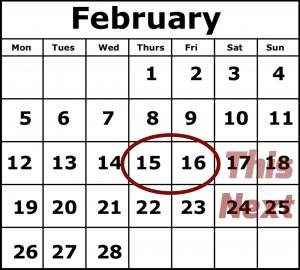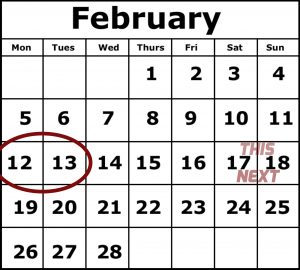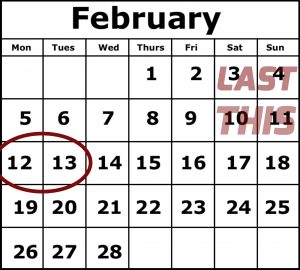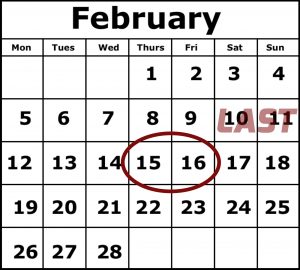
THIS weekend.
Do you know which weekend I’m talking about?
Am I talking about LAST weekend or NEXT weekend?
The answer for this is easy. Just look at the tense of the question.
What DID you do this weekend? ← past tense. The person is asking about past events.
What WILL you do this weekend? ← future tense. The person is asking about future plans.
So far, so good.
THIS, NEXT and LAST.
Here is where it gets a little tricky.
To understand how to use these words, we have to think about how far away in time the weekend is.
Using THIS and NEXT:

Imagine that today is the 15th (Thursday) or 16th (Friday).
If I ask you: What will you do THIS weekend? I’m talking about the 17th-18th.
If I ask you: What will you do NEXT weekend? I’m probably talking about the 24th-25th.
The 15th (Thursday) and 16th (Friday) are close to the weekend (17th-18th). So, instead of using NEXT, we may change it to THIS.

Now Imagine that today is the 12th (Monday) or 13 (Tuesday).
If I ask you: What will you do THIS weekend? I’m talking about the 17th-18th.
If I ask you: What will you do NEXT weekend? I’m also talking about the 17th-18th.
The 12th (Monday) and 13th (Tuesday) seem far from the weekend (17th-18th). So, using THIS and NEXT are both OK.
Using THIS and LAST:

Imagine that today is the 12th (Monday) or 13th (Tuesday).
If I ask you: What did you do THIS weekend? I’m talking about the 10th-11th.
If I ask you: What did you do LAST weekend? I’m probably talking about the 3rd-4th.

Now Imagine, that today is the 15th (Thursday) or 16th (Friday).
If I ask you: What did you do LAST weekend? I’m talking about the 10th-11th.
I won’t ask you: What did you do THIS weekend? It may sound unnatural because Thursday and Friday seem far from the previous weekend.
What about the days in the middle of the week (Wednesday, sometimes Tuesday)?
That’s a good question. It is not so clear. So if you have any doubt, you should clarify.
Common clarifying phrases for these situations are:
- Do you mean THIS weekend or NEXT weekend?
- Do you mean THIS weekend or LAST weekend?
Here is an example conversation:
Situation: Today is the 14th (Wednesday).
A: What will you do next weekend?
B: Do you mean this weekend or next weekend?
A: This weekend.
B: I see. I’m going to a baseball game this weekend.
Situation: Today is the 13th (Tuesday).
A: Hey, what did you do last weekend.
B: Do you mean this weekend or last weekend?
A: This weekend.
B: Oh. I went skiing in Nagano.
As you can see, speaking naturally in this situation is complicated. With practice you will get the feel for it. In the mean time, make sure you are listening to the tense of the question and don’t forget to use the clarifying phrases.
So, what will you do next weekend?
Natural English used in this post:
so far, so good = the situation is good from the beginning to now
tricky = difficult
get the feel for = learn / get used to
in the mean time = the time before an event
